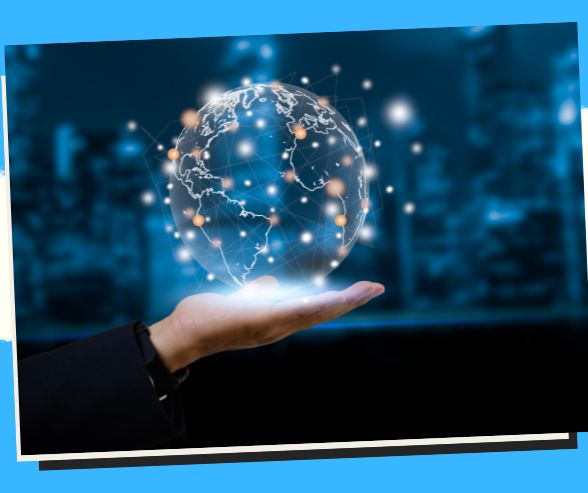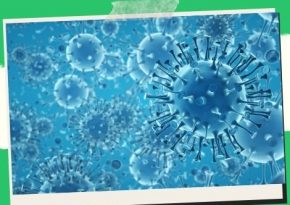
The Future of Health: How IoT is Changing the Game! 💊
Explore the future of healthcare with IoT! From smart wearables to data-driven decisions, discover the endless possibilities. 🌐💊
Revolutionizing Healthcare 🏥 with IoT: A Look at the Game-Changing Applications
In today’s fast-paced world, technology has made its way into every corner of our lives, and healthcare is no exception. Integrating Internet of Things (IoT) technology into healthcare is a game-changer that promises to transform how we receive and deliver medical services. From monitoring patients remotely to improving drug management and enhancing the overall healthcare experience, IoT is revolutionizing the healthcare industry. 🚀
What is IoT in Healthcare?
IoT in healthcare refers to the network of interconnected devices and systems that collect and exchange data to enhance patient care, streamline operations, and improve overall health management. These devices, equipped with sensors and communication capabilities, can gather real-time information, transmit it securely, and analyze it for actionable insights. IoT in healthcare has opened up a world of possibilities, and its applications are vast and ever-expanding.
Monitoring Patients Remotely 👩⚕️🏡
One of the most significant applications of IoT in healthcare is remote patient monitoring. This technology allows healthcare providers to monitor patients’ vital signs and health conditions without needing them to be physically present in a medical facility. Patients can wear or use various IoT devices, such as wearable fitness trackers, smartwatches, and even specialized medical sensors, to collect data like heart rate, blood pressure, glucose levels, and more. 🩺
This real-time data is sent to healthcare professionals who can analyze it and make informed decisions about a patient’s care plan. For example, a diabetic patient can wear a continuous glucose monitor (CGM) that sends glucose level data to their healthcare provider. If the levels become abnormal, the provider can adjust the patient’s insulin regimen, ensuring better management.
Enhancing Medication Management 💊💉
IoT is also making significant strides in improving medication management. Adherence to prescribed medication regimens can be a challenge for many patients. IoT-powered medication dispensers can remind patients to take their medications at the right time and in the correct dosage. These smart devices can also alert caregivers or healthcare providers if a patient misses a dose, allowing for timely intervention.
Moreover, IoT-enabled pill bottles can track medication usage and automatically order refills when the supply runs low. This reduces patients’ risk of running out of essential medications and ensures continuous treatment.
Streamlining Hospital Operations 🏥🔄
In addition to patient care, IoT is transforming how hospitals and healthcare facilities operate. Asset tracking systems using IoT technology help healthcare organizations monitor the location and status of medical equipment, ensuring that vital devices are readily available when needed. This improves patient care and reduces operational costs associated with equipment maintenance and replacement.
Furthermore, IoT-enabled inventory management systems automatically track and reorder medical supplies, reducing the risk of stockouts and wastage. Hospital staff can spend more time on patient care and less time managing inventory manually.
Enhanced Patient Experience 🤗
IoT is all about enhancing the patient experience. Smart hospitals are deploying IoT technology to provide patients more control and comfort during their stay. Patients can use mobile apps to adjust room temperature lighting and request assistance or medical attention. IoT-powered patient bracelets can provide real-time location tracking, ensuring that staff can respond quickly in emergencies.
Moreover, IoT can facilitate seamless communication between patients and healthcare providers. Telemedicine and virtual consultations have become more accessible, allowing patients to receive medical advice and follow-up care from the comfort of their homes.
Challenges and Considerations 🤔
While the healthcare applications of IoT are undeniably promising, they come with their fair share of challenges and considerations. Here are some key points to keep in mind:
- Data Security and Privacy: With the influx of sensitive patient data, ensuring data security and privacy is paramount. Healthcare organizations must invest in robust cybersecurity measures and compliance with regulations like HIPAA.
- Interoperability: IoT devices from various manufacturers should seamlessly communicate with each other and integrate into existing healthcare systems. Ensuring interoperability is essential to maximize the benefits of IoT in healthcare.
- Cost: Implementing IoT solutions can be costly initially, but the long-term benefits often outweigh the initial investment. Healthcare organizations must carefully assess the cost-effectiveness of IoT solutions.
- Training and Education: Healthcare staff must be adequately trained to use IoT devices and interpret the data they generate. Investing in training programs is crucial for successful implementation.
- Ethical Considerations: As IoT collects and analyzes vast amounts of patient data, ethical considerations surrounding consent, data ownership, and data use must be addressed.
Conclusion 🌟
The healthcare applications of IoT are reshaping the industry in profound ways. From remote patient monitoring to improving medication management, streamlining hospital operations, and enhancing the patient experience, IoT is proving to be a transformative force for good.
As technology advances, we can expect even more innovative and life-saving applications of IoT in healthcare. However, it’s essential to navigate the challenges and ethical considerations carefully to ensure that this revolution truly benefits patients and the healthcare industry.
So, the next time you visit a healthcare facility and see a smart device helping to improve patient care, remember that it’s not just technology; it’s a testament to the power of IoT in healthcare. 🌐🏥💙
Related Queries
IoT’s impact on healthcare
Revolutionizing patient care with IoT
Smart wearables in healthcare
Data-driven decisions in wellness
Connected care solutions
Predictive healthcare with IoT
Remote patient monitoring
IoT’s role in modern hospitals
Saving lives with data-driven health
IoT healthcare revolution
Save/Share this story with QR CODE
Disclaimer
This article is for informational purposes only and does not constitute endorsement of any specific technologies or methodologies and financial advice or endorsement of any specific products or services.
📩 Need to get in touch?
Feel free to Email Us for comments, suggestions, reviews, or anything else.
We appreciate your reading. 😊Simple Ways To Say Thanks & Support Us:
1.) ❤️GIVE A TIP. Send a small donation thru Paypal😊❤️
Your DONATION will be used to fund and maintain NEXTGENDAY.com
Subscribers in the Philippines can make donations to mobile number 0917 906 3081, thru GCash.
3.) 🛒 BUY or SIGN UP to our AFFILIATE PARTNERS.
4.) 👍 Give this news article a THUMBS UP, and Leave a Comment (at Least Five Words).
AFFILIATE PARTNERS

World Class Nutritional Supplements - Buy Highest Quality Products, Purest Most Healthy Ingredients, Direct to your Door! Up to 90% OFF.
Join LiveGood Today - A company created to satisfy the world's most demanding leaders and entrepreneurs, with the best compensation plan today.



 Business Technology, Finance Technology & Information Technology
Business Technology, Finance Technology & Information Technology





